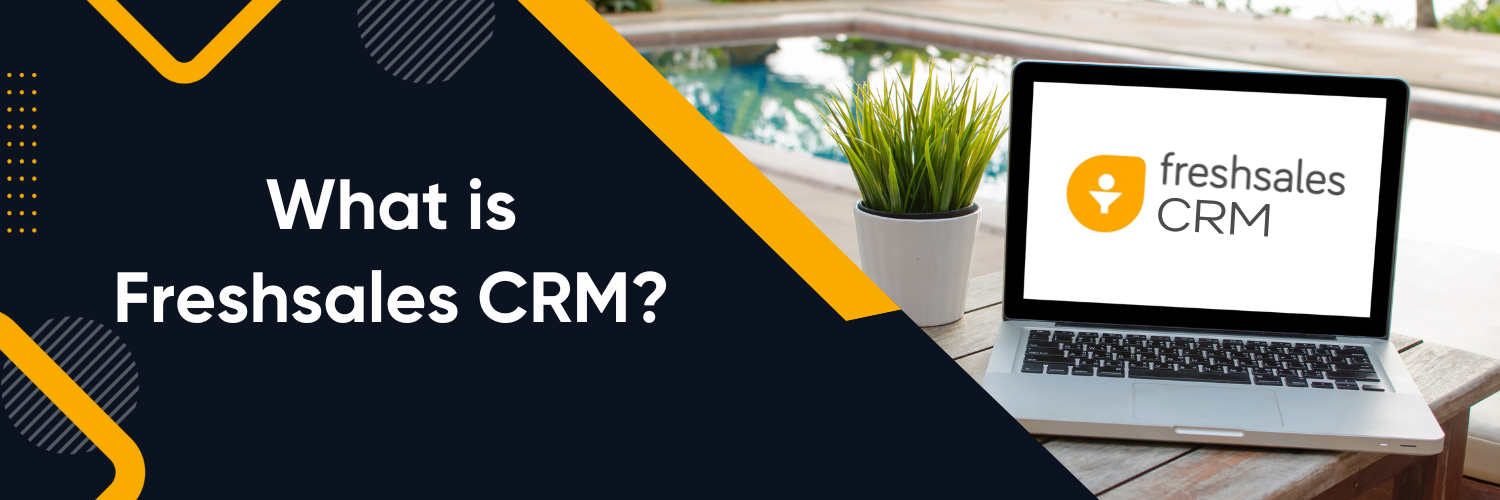What are Web Cookies?
Web cookies, often simply referred to as “cookies,” have been a fundamental part of the internet’s inner workings for decades. They serve myriad purposes, ranging from improving user experience on websites to collecting data for advertising campaigns. Understanding their varieties and uses can shed light on their significance in the digital world.
Web cookies are small text files stored on a user’s browser by websites they visit. These files contain bits of data—like user preferences, session information, and other data—that websites utilize to recall information about the user. As fundamental components of the web ecosystem, they contribute to smoother user navigation, personalization, and even security.
These files contain bits of data that allow websites to remember information about users. Here’s a more detailed look:
1. Purpose: Cookies play a crucial role in enhancing the user experience on the web. They allow websites to remember users and their preferences, track user behaviour, and provide personalized content or ads.
2. Lifespan:
- Session cookies: These are temporary and are deleted once you close your browser. They’re used for functions like keeping items in a shopping cart while a user navigates a site.
- Persistent cookies: These remain on your device for a specified period or until you delete them. They’re used to remember login details and other preferences.
3. Origin: Based on where they come from, cookies can be:
- First-party cookies: Set by the website you’re directly visiting. For instance, if you’re on example.com, the cookies from example.com are first-party cookies.
- Third-party cookies: Set by a domain other than the one you’re visiting. They are mostly used for advertising and tracking across websites.
4. Security: Some cookies ensure secure interactions, such as:
- Secure cookies: These are transmitted over secure HTTPS connections.
- HttpOnly cookies: Can’t be accessed via JavaScript, adding a layer of security to prevent certain types of attacks.
5. Functionality: Cookies can also serve specific functions, like:
- Preference cookies: Remember choices you make on a site, like a language or region, to provide a personalized experience.
- Authentication cookies: Track whether a user is logged in and under which name.
- Tracking/advertising cookies: Monitor user behaviour for advertising purposes, helping advertisers deliver more relevant ads.
6. Privacy Concerns: The tracking nature of some cookies, especially third-party cookies, has raised concerns over user privacy. Many feel that their online activities are constantly monitored, leading to regulations in many regions, like the European Union’s General Data Protection Regulation (GDPR), which mandates clear consent mechanisms for tracking cookies.
7. Managing Cookies: Users can view, delete, and control the cookies stored on their browsers through browser settings. Some people also use browser extensions or tools to manage cookies more efficiently.
Different Types of Web Cookies
1. Session Cookies
Session cookies are temporary and last only for a single session. They track user actions during the session and are deleted once the browser is closed. For instance, they can keep products in a shopping cart during a single online shopping experience.
2. Persistent Cookies (also known as Tracking Cookies)
Persistent cookies, true to their name, persist even after a browser session ends. They’re instrumental in recognizing returning visitors, remembering user preferences, or tracking user behaviour across multiple sessions, making website interactions more streamlined and personalized.
3. Secure Cookies
These cookies are transmitted over secure HTTPS connections. They’re used by websites to ensure the data within the cookie, such as login credentials, is encrypted and secure from potential eavesdroppers.
4.HttpOnly Cookies
HttpOnly cookies can’t be accessed via JavaScript. This is especially crucial for preventing cross-site scripting (XSS) attacks, where malicious scripts try to extract cookie data.
5. Third-party Cookies
Primarily used by advertisers, third-party cookies track user behaviour across different websites. This enables the creation of user profiles for targeted advertising. When you see an ad on one site for a product you searched on another, that’s third-party cookies in action.
6. First-party Cookies
Set by the website you’re directly visiting, first-party cookies remember things like your language preferences or login state. They’re crucial for user customization and don’t track you across different domains.
7. Zombie Cookies
Zombie cookies are persistent and resilient. Even after being deleted, they can regenerate. This is done using stored data outside of the standard cookie storage, making them controversial in terms of user privacy.
8. Flash Cookies (LSOs – Local Shared Objects)
Once popular with Flash-based websites, Flash cookies can store data outside of standard cookie storage. They have been used for tracking, especially as they’re harder for users to locate and delete.
9. Super Cookies
A more invasive type, super cookies store data in multiple places, like ETag storage or HSTS flags. This makes them incredibly persistent and difficult to remove, hence raising privacy alarms.
10. SameSite Cookies
These cookies add a layer of security against cross-site request forgery attacks. By specifying how cookies should be restricted to a first-party or same-site context, they prevent potential misuse.
How Cookies Track User Behaviour
When you interact with a website, there’s a continuous exchange of information between your web browser and the website’s server. This exchange ensures that the website displays correctly and responds to your actions, like clicking on a link or adding an item to a shopping cart. Cookies play an integral role in this exchange by acting as markers or identifiers, helping the website remember you and your past interactions.
The Mechanism Behind the Scenes
Cookies function by storing specific data—like unique user IDs. Every time a user revisits a site, the browser sends this cookie data back to the server. The server then uses this to fetch relevant user-specific data, tailoring the experience.
Here’s how the mechanism works:
1. Setting the Cookie:
- When you visit a website for the first time, the website may set a cookie on your browser. This cookie usually contains a unique identifier (often a long string of numbers and letters).
- The website’s server instructs your browser to store this cookie, along with some other attributes such as its expiration date and the domain it’s valid for.
2. Returning to the Site:
- When you revisit the same website, your browser sends the cookie back to the server. This reminds the website of your previous visit.
- For example, if you’ve added items to a shopping cart but haven’t checked out, the website can use the cookie to remember those items and display them in your cart, even if you come back days later.
3. Tracking Across Sites:
Third-party tracking cookies can monitor your behaviour across multiple websites. Here’s a simplistic scenario:
- You visit Website A and view a product. Website A has an advertisement from Ad Company Z, which places a cookie on your browser.
- Later, you visit Website B, which also features advertisements from Ad Company Z. Since Company Z’s cookie is already on your browser, it notifies Website B of your interest in the product from Website A. As a result, you might see an ad for the same product or related products.
- This cross-site tracking builds a profile of your online behaviour, allowing advertisers to serve more relevant ads.
4. Analytics:
- Many websites use analytics services (like Google Analytics) to understand user behaviour. These services use cookies to collect data on how users interact with the site.
- This data can include which pages you visited, how long you stayed on each page and the journey you took through the site. Over time, this data provides insights into user preferences and behaviour patterns.
5. Beyond Cookies:
- Modern tracking often combines cookies with other techniques for a more comprehensive profile. For instance, fingerprinting uses various data points from your browser and device to create a unique profile, sometimes bypassing cookie restrictions.
6. Privacy Implications:
- As cookies collect data about user behaviour, there are valid concerns about privacy, data security, and consent. This has led to regulations and browser changes that give users more control over which cookies can be set and how their data is used.
Benefits of Cookies for Websites
Cookies offer tons of benefits to website owners and developers. Their ability to store data directly on a user’s browser makes them a potent tool for enhancing the overall functionality and effectiveness of a website. Here’s a breakdown of the key benefits cookies provide for websites:
1. Personalisation:
- User Preferences: Cookies remember individual user settings, such as language, region, or theme preferences, ensuring users don’t have to reset these details with every visit.
- Custom Content: Based on browsing history and interactions, websites can display relevant content, such as recommended articles, products, or services.
2. User Authentication:
- Session Management: Once a user logs into a platform, cookies keep them logged in as they navigate through different pages. Without cookies, users might have to re-enter their credentials every time they access a new page on the site.
- Security: Certain cookies help in detecting unusual or suspicious login activities by tracking sessions and devices.
3. E-commerce Functionalities:
- Shopping Carts: For e-commerce sites, cookies remember the items a user places in their cart, ensuring these items remain there even if the user exits the browser and returns later.
- Checkout Preferences: Payment and shipping preferences can be stored, expediting future checkout processes.
4. Analytics and Data Collection:
- User Behaviour: Analytics tools, like Google Analytics, rely on cookies to collect data on user behaviour, such as which pages they visit, how long they stay, and the paths they take through the site.
- Audience Insights: This data helps website owners understand their audience’s demographics, interests, and habits, enabling them to make informed decisions about content and design.
5. Advertising and Revenue Generation:
- Targeted Advertising: With the help of cookies, especially third-party ones, advertisers can display ads tailored to a user’s interests and past behaviour, potentially increasing click-through rates and conversions.
- Ad Performance: Cookies help track the performance of ads, determining which ones are most effective and providing insights for future marketing strategies.
6. A/B Testing and Website Optimization:
- Experimentation: Cookies allow websites to display different versions of a page to different users, helping to determine which version performs better in terms of user engagement, conversions, etc.
- User Experience: Feedback from these tests enables website owners to refine and optimize the user experience.
7. Reduced Bandwidth Usage:
- Caching Preferences: Instead of retrieving the same data from the server with every visit, websites can use cookies to store and recall certain user-specific settings, reducing the need to continuously re-download information.
8. Feedback Collection:
- Surveys and Pop-ups: Cookies can determine whether a user has already responded to a survey or closed a pop-up, ensuring these elements don’t annoy users by reappearing repeatedly.
9. Affiliate Marketing:
- Affiliate Tracking: For websites with affiliate marketing programs, cookies track which affiliate links visitors click, ensuring the right affiliates get credit for any resulting sales or sign-ups.
Privacy Concerns
The use of cookies, especially when tracking user behaviour across the internet, has given rise to significant privacy concerns. These concerns revolve around the collection, storage, and sharing of personal data without explicit user knowledge or consent. Here’s a closer look at these concerns:
1. Unconsented Data Collection:
- Invasive Tracking: Third-party cookies, in particular, can track users across multiple websites, building a detailed profile of their online behaviour, preferences, and interests. Often, users are unaware of the extent of this tracking.
- Aggregation of Data: While individual cookies might store innocuous data when aggregated, they can create comprehensive profiles of users, which can be considered intrusive.
2. Data Sharing and Sale:
- Third-party Advertisers: Data collected through cookies is often shared with or sold to third-party advertisers. This allows for targeted advertising but can also result in users feeling like their activities are under surveillance.
- Data Brokers: There are companies specializing in collecting, processing, and selling user data to other businesses, further distancing the user from knowing where and how their data is used.
3. Potential for Misuse:
- Data Breaches: If not properly secured, data collected through cookies can be vulnerable to cyber-attacks, leading to personal data exposure.
- Malicious Intent: In some cases, what appear to be legitimate cookies can be used for nefarious purposes, such as stealing personal information or facilitating cyber-attacks.
4. Lack of Transparency:
- Complex Terms of Service: While many websites have terms of service or privacy policies detailing their use of cookies, these documents are often lengthy, complex, and not easily understood by the average user.
- Implicit Consent: Some websites assume consent by default if a user continues to use the site, rather than seeking explicit permission.
5. Limitation on User Control:
- Opt-out Challenges: While users can manage cookies through browser settings, the process is not always intuitive. Some websites make it challenging to opt out of certain tracking practices.
- Zombie Cookies: Certain types of cookies, known as “zombie cookies,” can regenerate even after being deleted, effectively bypassing user attempts to manage their privacy.
7. Impacts on Personal Autonomy:
- Filter Bubbles: As cookies facilitate personalized content delivery, users often see only content tailored to their past behaviour. This can limit exposure to diverse information and reinforce existing beliefs, creating so-called “filter bubbles.”
- Behavioural Manipulation: Detailed user profiles can be used not just for targeted advertising but also for influencing user behaviour, which raises ethical concerns.
Managing and Blocking Cookies
Browser Settings
Most modern browsers—like Chrome, Firefox, and Safari—offer settings to view, manage, and delete cookies. Users can also set preferences for blocking third-party cookies or all cookies.
Using Cookie Management Tools
Extensions like Ghostery, Privacy Badger, or built-in features like Firefox’s Enhanced Tracking Protection, help users control who can set cookies and who can’t.
Conclusion
Web cookies have transformed our digital experience, offering an unprecedented level of personalization and convenience. However, with these benefits come nuanced debates around privacy and user autonomy. As the terrain of the digital world continually shifts, the dynamics of how cookies function and influence our online journeys will evolve in tandem. The challenge lies in striking the right equilibrium between delivering seamless user experiences and upholding the sanctity of privacy.
If you need help with your digital marketing strategies and you want to give your business the edge it deserves, partner with Ubique Digital Solutions. We are your trusted partner in software consulting, IT expertise, and CRM integration. Elevate your digital presence and propel your business to new heights with our tailored solutions. Contact us now!
FAQs
Q: Difference between cookies and cache?
While both store data, cookies save user-specific information (like login state), whereas cache holds web page resources for faster loading.
Q: Are all cookies bad for privacy?
No, only those who track across multiple sites without consent are generally frowned upon.
Q: How can I see cookies on my computer?
Navigate to browser settings, usually under “Privacy” or “History.”
Q: Can a site function without cookies?
Yes, but it might lack personalization and user-specific features.
Q: Legal regulations surrounding cookies?
Different regions, like the EU with its GDPR, have regulations for user consent before setting cookies.


















